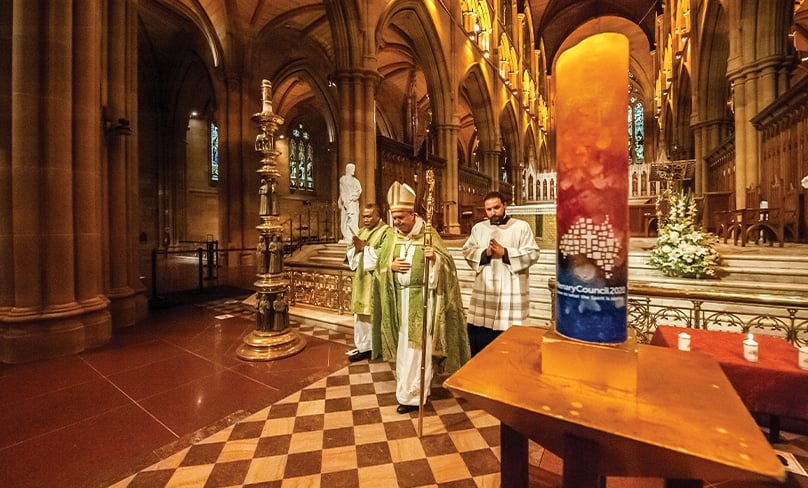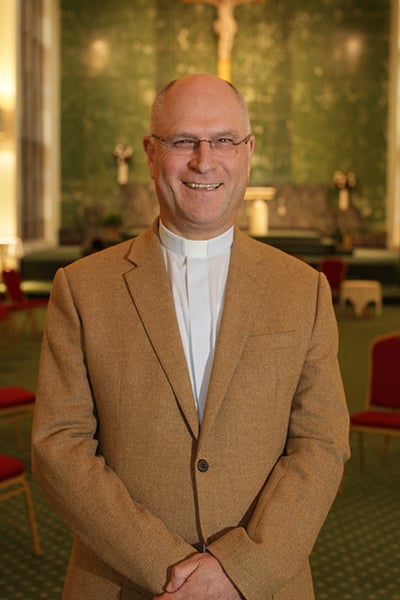
In his closing remarks to the ACCCR “The People and the Plenary” session, Emeritus Professor John Warhurst said more transparency around the Plenary’s processes at this stage could help keep members and the broader Church engaged. The Catholic Weekly could not agree more, and gives Professor Warhurst’s statements a ringing endorsement.
The Church’s councils, from the earliest centuries until now, have always been judged in part by their reception. If Catholics and their parishes are to understand and endorse the suite of “reforms” being proffered by the Plenary then Professor Warhurst is right: they deserve the right to know more about what’s on offer before June when the “official” propositions are released.
There can be no harm to the Church in releasing the draft propositions in their current form, especially now that the time for members’ feedback has elapsed. At the very least it will give Catholics some insight into how the propositions have changed over their lifespan.
It might also mitigate the worry that the Second Assembly, with its short timeframe and need for discipline in debate, could resemble the national conference of a political party, with the motions presented as fait accompli whose outcomes are known well ahead of time.
In this sense, it would be of benefit to the whole Church in Australia for the Plenary organisers to be as transparent about the limitations and constraints of this process as Fr Ranson.
A second endorsement: bravo, Fr Ranson, for your candour and realism in stating that at a Plenary Council not everything is “on the table” and that the participants, despite their dedication and goodwill, have become fatigued by COVID and other disruptions to everyday life over the last few years.
With a Federal Election on the horizon the distractions will only multiply. Nevertheless, the Church must “press on toward the goal for the prize of the heavenly call of God in Christ Jesus” (Phil 3:14) and complete the Plenary process in good time, remembering the Apostle’s admonition in the very next sentences of his Epistle to the Philippians:
“Let those of us then who are mature be of the same mind; and if you think differently about anything, this too God will reveal to you. Only let us hold fast to what we have attained.”
We also commend Fr Ranson, who makes two appearances in this issue, for walking the walk: not only is he exploring ways to constructively build synodality in his Parish in Chatswood, but in his capacity as Vicar-General of Broken Bay Diocese is supporting new initiatives for the element of Church life in most need of a bit of TLC: the domestic church (see report by Debbie Cramsie, pages 3&14).
Fr Ranson said in his ACCCR remarks that responding pastorally to post-Plenary discontent will be a critical challenge.

This is no doubt the case and, as he implied, the open-ended agenda of the First Assembly may, in hindsight, have contributed to the looming sense among the so-called “reformers” that the Plenary will be a disappointment.
But we might also add that the young men and women trying to form their own domestic churches, and raise their children in stable parishes, with a robust and defensible faith, have suffered their fair share of disappointments in recent decades.
Then there are the countless Catholics who, in our secularising culture, cannot find husbands or wives who wish to form marriages that image the mysterious union between Christ and the Church.
These Catholics do not have a sectional lobby group to represent them. Nor do they need one. Their representative ought to be the Church, whose continued existence depends on each generation “traditioning” the next rather than attempting to remake ecclesial life in its own image.
Indeed, the Greek verb for tradition, paradidomi, means to hand over something to another; among its earliest uses was the passing over of the torch from one runner to a next in the relay race.
Whatever is passed on is taken up by the next generation, and therefore involves a sense of uncertainty and fragility. Will the next runner trip and fall, or charge ahead confidently towards the finishing line?
The Catholic Weekly has always been an advocate for the revolutionary power of ordinary families to reform the Church. It is well past time to hand them the torch and let them run.
Related:
